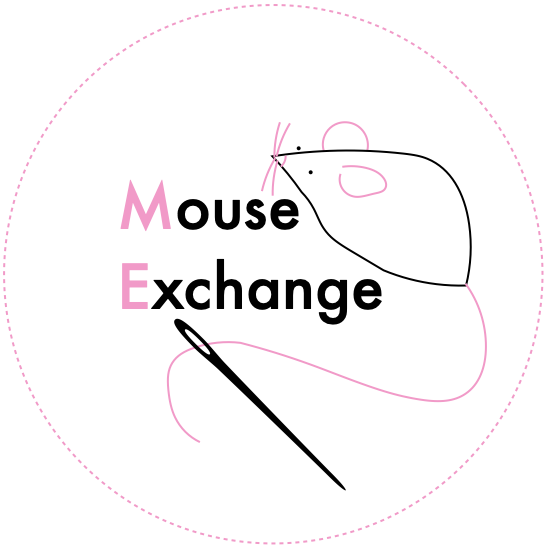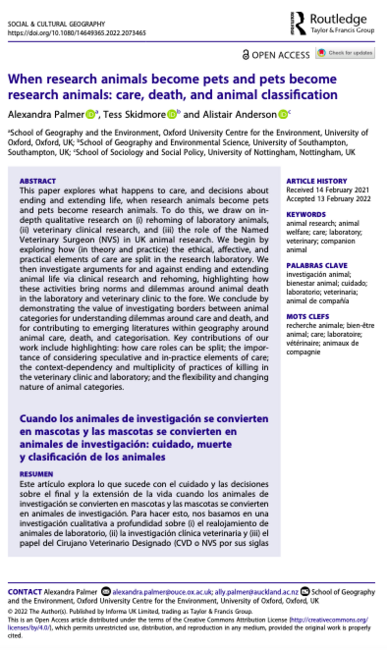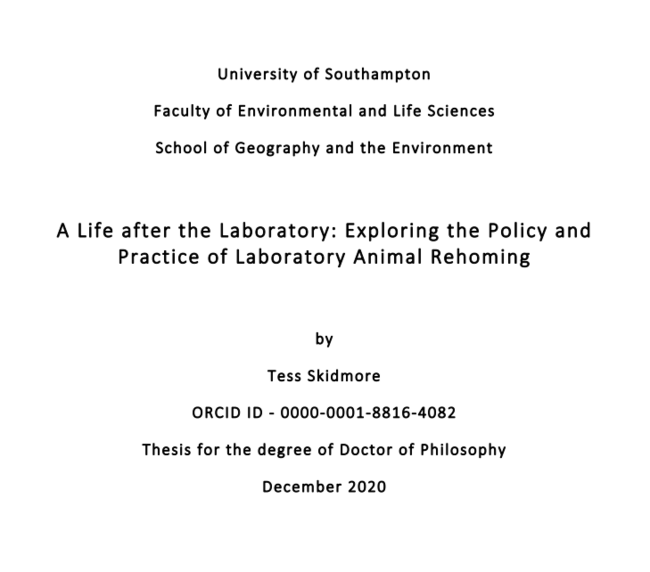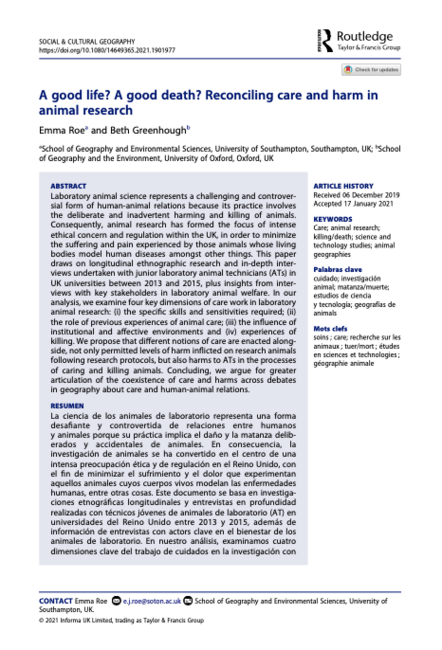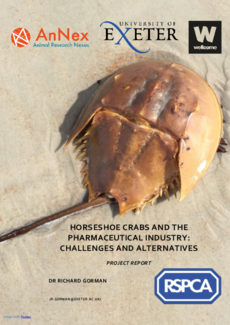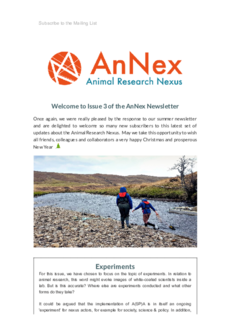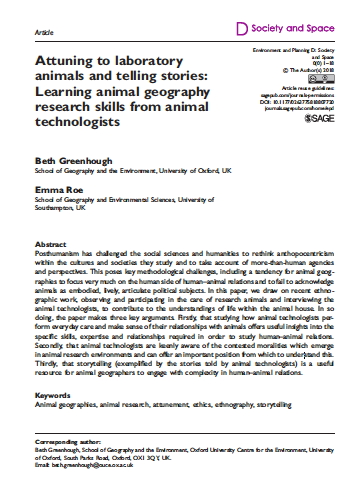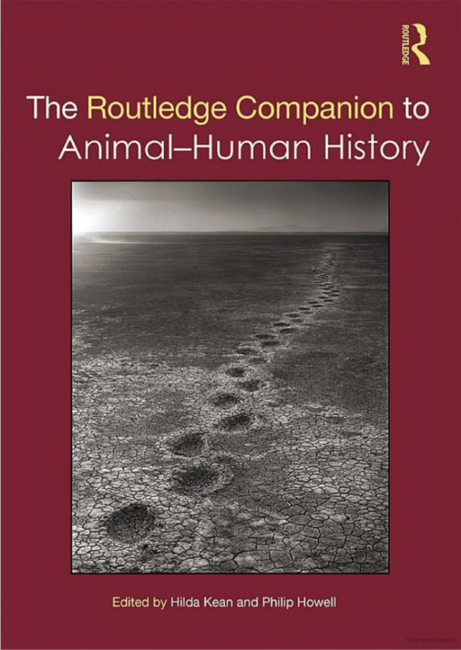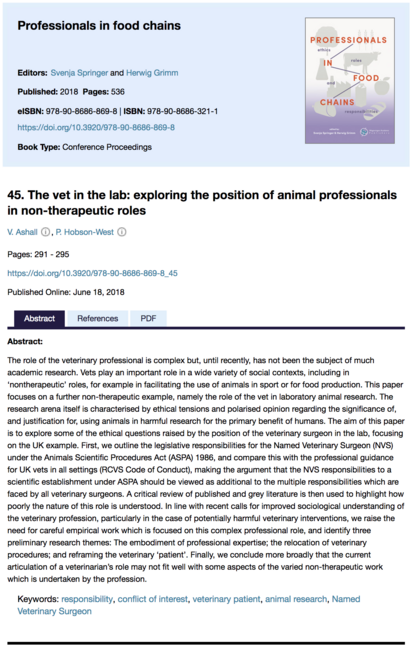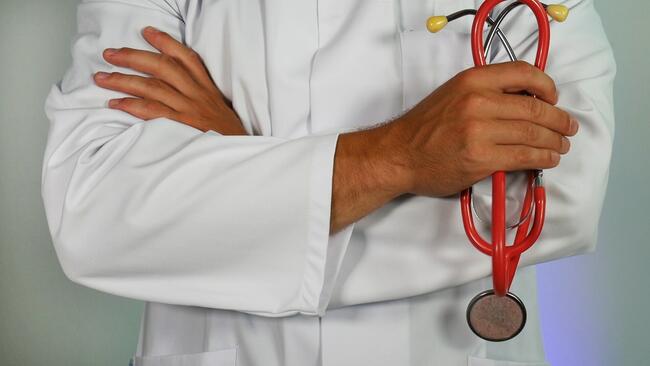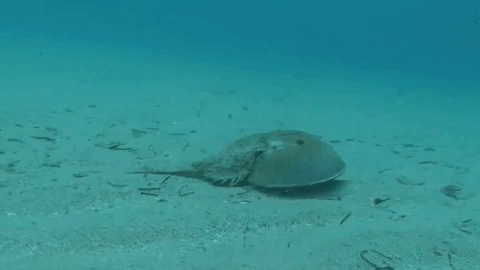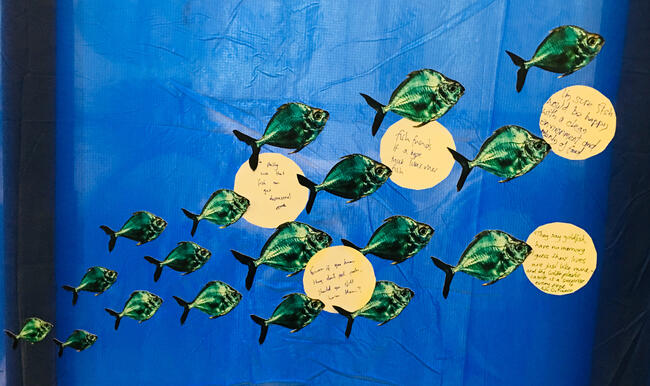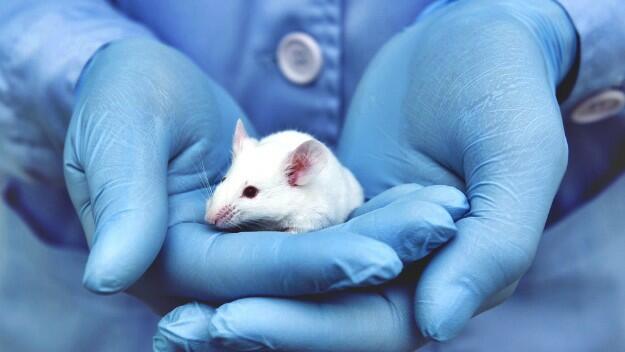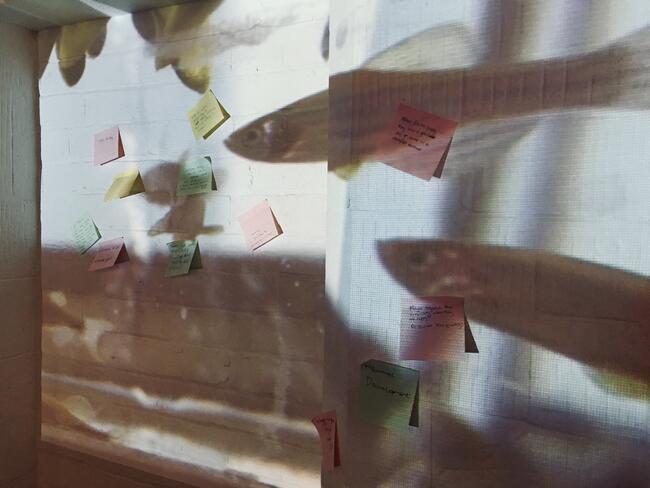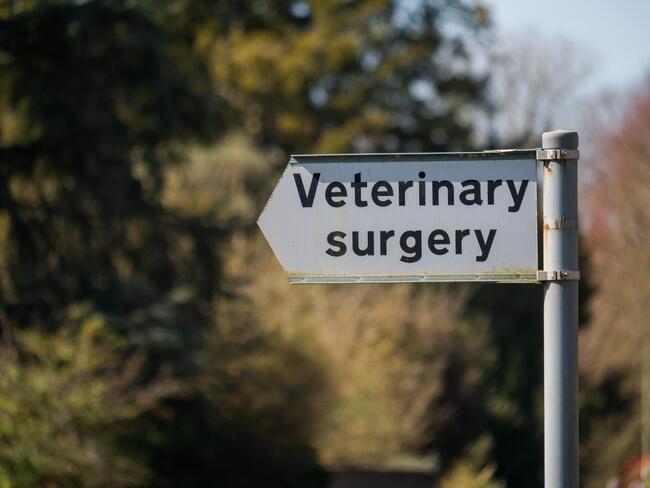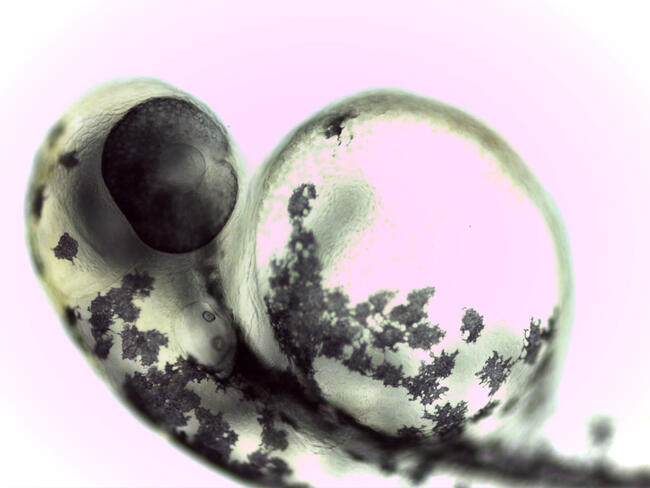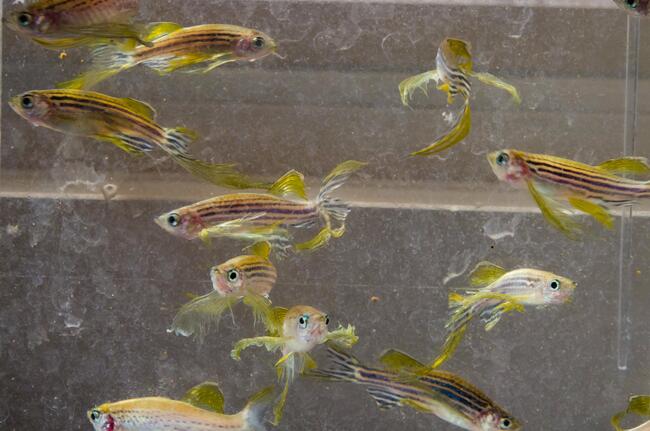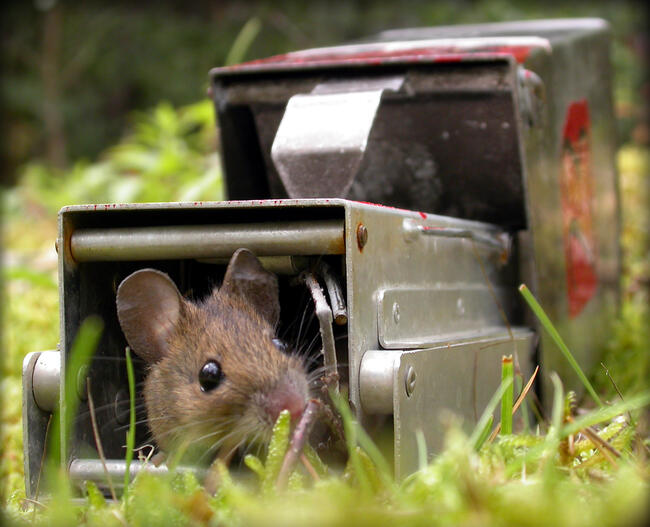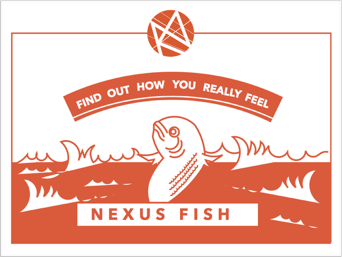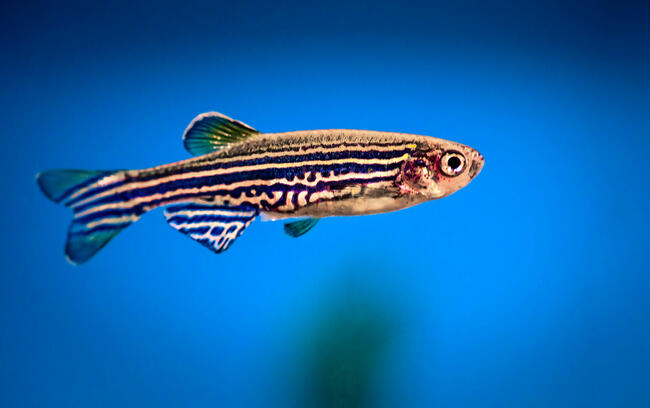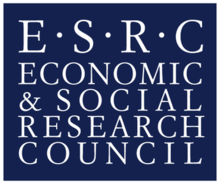Animal Welfare
Relevant, tagged site content:
Engagement Activities
The Mouse Exchange is a public engagement activity where we invite small groups of members of the public to “
Publications
This paper explores what happens to care, and decisions about ending and extending life, when research animals become pets and pets become research animals. To do this, we draw on in- depth qualitative research on (i) rehoming of laboratory animals, (ii) veterinary clinical research, and (iii) the role of the Named Veterinary Surgeon (NVS) in UK animal research. Key contributions of our work include highlighting: how care roles can be split; the impor- tance of considering speculative and in-practice elements of care; the context-dependency and multiplicity of practices of killing in the veterinary clinic and laboratory; and the flexibility and changing nature of animal categories.
This thesis, written by Tess Skidmore, explores the rehoming of laboratory animals. Drawing on qualitative interviews and a semi-structured questionnaire, the thesis investigates the sociocultural and political importance of the growing attention toward rehoming.
Laboratory animal science represents a challenging and controversial form of human-animal relations because its practice involves the deliberate and inadvertent harming and killing of animals. We propose that different notions of care are enacted alongside, not only permitted levels of harm inflicted on research animals following research protocols, but also harms to ATs in the processes of caring and killing animals.
Endotoxin testing is a vital part of quality and safety control in pharmaceutical production. The primary method for this testing in North America and Europe is the limulus amebocyte lysate (LAL) test, a critical component of which is the blood of Atlantic horseshoe crabs (Limulus polyphemus). Procuring blood for LAL testing involves capturing and bleeding over 500,000 crabs from wild marine populations each year. Whilst efforts are made by manufacturers to return crabs to the sea following the collection of blood, there is a level of mortality and sub-lethal impact involved, prompting increasing discussions about welfare and ethics. The 3Rs – the ambition to where possible, replace, reduce, and refine the use of animals – are established and accepted worldwide as the best framework for governing animal-dependent science. However, the biomedical utilization of horseshoe crabs to produce the LAL test has rarely been viewed through a 3Rs framework. More recently, there has been a renewed attention on sustainable methods and alternatives to the LAL test. Drawing on in-depth qualitative interviews, this article examines stakeholder perspectives on opportunities for thinking with the 3Rs, considering current appetites to replace, refine, and reduce contemporary biomedical reliance on horseshoe crabs. The shape of conversations about the biomedical utilization of horseshoe crabs has shifted significantly in recent years, and the 3Rs are an important driver of change, offering the potential to advance the use of more sustainable methods, and realize the welfare considerations increasingly expected across science and society.
Endotoxins are bacterial components that can cause systemic toxicity if they enter the mammalian blood stream.
While sociologists of medicine have focused their efforts on understanding human health, illness, and medicine, veterinary medical practice has not yet caught their attention in any sustained way. In this critical review article, we use insights from the sociology of diagnosis literature to explore veterinary practice, and aim to demonstrate the importance of animals to sociological understandings of health, illness and disease. We hope that this work encourages more focus on the veterinary profession, and a better understanding of the role of the vet inside and outside the laboratory.
This paper draws on ethnographic work with laboratory animal technologists to offer insights into the skills required to study human–animal relations and the role played by storytelling in negotiating the contested moral economies of animal research.
The Routledge Companion to Animal-Human History provides an up-to-date guide for the historian working within the growing field of animal-human history. This book chapter by Rob Kirk suggests that to understand animal–human history we would do well to start with the role of animals in science.
Vets play an important role in a wide variety of social contexts, including in ‘non-therapeutic’ roles, for example in facilitating the use of animals in sport or for food production. This paper focuses on a further non-therapeutic example, namely the role of the vet in laboratory animal research
Blog entry
Over three days in July 2022, colleagues from the UK and beyond gathered online to discuss the thorny question of veterinary expertise.
Rich Gorman’s secondment to the RSPCA explored the social relations shaping the use of horseshoe crab blood within pharmaceutical endotoxin testing.
We are delighted to publish this guest blog as part of our Coronavirus Connections series.
Can animals volunteer to participate in research? If so, what does volunteering look like, and what does it mean for animal welfare?
In the Species and Spaces project, we’re exploring people’s perceptions around fish use, sentience, and how these shape and define assumptions around their welfare requirements.
Understanding and examining the significance of the laboratory space physically, practically, emotionally and metaphorically, is opening up new lines of social scientific enquiry regarding the relations between health, science and welfare
The way we think about the welfare needs of animals is always conditioned by our prior experiences and preconceptions. This is especially true of fish.
Events
Academics at the University of Nottingham are pleased to announce that a conference on Veterinary Expertise is now available for booking!
How, why (and why not) are fish utilised as mascots in public engagement with animal research?
Reuben Message presented at the RSPCA organised 'Focus on Fish' online event on the 23rd of February 2021.
What kinds of ethical and practical challenges do wildlife researchers face? How do these challenges compare with those faced by researchers working with laboratory animals?
Oxford University’s first Open Doors Community Fair, taking place in the Weston Library’s stunning Blackwell Hall in Broad Street on Saturday 10 September between 1pm and 4pm.
On the 29th of November 2018, Animal Research Nexus team members helped to organise an event on the standardisation of welfare terminology.
Announcements
The University of Nottingham as part of Midlands Graduate School is now inviting applications for an ESRC Doctoral Studentship in association with our collaborative partner, RSPCA, to commence in October 2019.
Project partners

The Medical Research Council’s Mary Lyon Centre (MLC) is located on the Harwell Campus, Oxfordshire.
